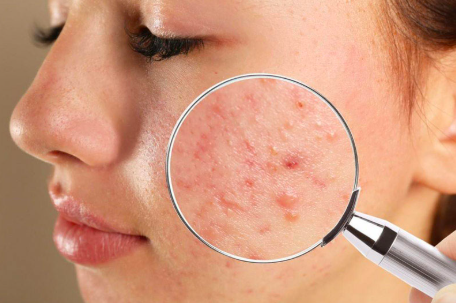
20 Nov How Dermatologists Can Help with Skin Allergies and Irritations
Skin allergies and irritations can make daily life uncomfortable, from constant itching to visible redness or swelling. Dermatology focuses on identifying the causes of these reactions and the most effective ways to treat them. A dermatologist can pinpoint triggers, calm flare-ups, and help prevent future episodes with personalized care. Here’s how dermatologists can help you with allergies and irritations:
Causes of Skin Allergies
Skin allergies and irritations are the body’s reaction to a substance it views as harmful, even when it is not. This substance is called an allergen, and the immune system responds by releasing chemicals such as histamine, which trigger allergy symptoms. Common allergens include specific foods, pollen, pet dander, insect stings, and medications. Direct contact with substances like nickel, latex, certain soaps, or poison ivy may also trigger a reaction.
Genetics and environmental factors can make some individuals more prone to developing skin allergies. Irritants differ from allergies because they do not involve an immune system response. Instead, they occur when the skin is directly damaged by a substance.
Dermatology Diagnosis Steps
To determine the cause of skin irritation, dermatology specialists rely on specific diagnostic methods. Here are some common methods used for diagnosis:
- Patch Testing: Small amounts of suspected substances are applied to patches, which are then placed on your skin. After about 48 hours, the dermatologist removes the patches and checks for reactions.
- Skin Prick Testing: For allergies to substances such as pollen or food, a skin prick test may be used. A tiny drop of the allergen is placed on your skin, and the skin is lightly pricked with a needle.
- Blood Tests: In some cases, a blood test may be ordered to measure the amount of specific allergy-related antibodies, known as Immunoglobulin E (IgE), in your bloodstream. This test is helpful when skin conditions, such as severe eczema, make skin testing difficult.
- Biopsy: If the cause of the skin issue is not clear, a dermatologist may perform a skin biopsy. A small skin sample is removed and examined under a microscope to rule out other conditions or confirm a diagnosis.
These methods help dermatologists to accurately identify the triggers for your skin issues and proceed with the most suitable treatment.
Specialist Treatment Options
Once a diagnosis is confirmed, dermatology specialists will create a treatment plan tailored to your specific condition. The goal is to relieve symptoms, manage the allergy, and prevent future flare-ups. Treatment options can range from topical creams to oral medications, depending on the severity and type of allergy.
A key part of treatment is patient education, during which the dermatologist explains how to avoid the identified allergens. They will provide guidance on what products to use and ingredients to avoid in your daily skin care routine. They may suggest lifestyle modifications to help manage your condition effectively.
Prevention Tips for Flare-ups
Preventing future allergic reactions is a key component of long-term management. Here are some preventive measures to contemplate:
- Read Labels Carefully: Make it a habit to check the ingredients on all skin care products, cosmetics, and laundry detergents.
- Protect Your Skin: If you must come into contact with a known irritant, wear protective gear.
- Moisturize Regularly: Keeping your skin well-hydrated strengthens its natural barrier.
- Manage Your Environment: If you have environmental allergies, like pollen or dust mites, take steps to reduce your exposure.
Implementing these preventative steps can reduce the frequency and severity of skin reactions significantly.
Book Your Dermatology Appointment Today
Skin allergies and irritations can be managed effectively with the right approach. Dermatology specialists can recommend targeted treatments and provide guidance on preventing future flare-ups. For persistent skin issues, contact a trusted dermatology specialist near you to book your appointment today.

No Comments